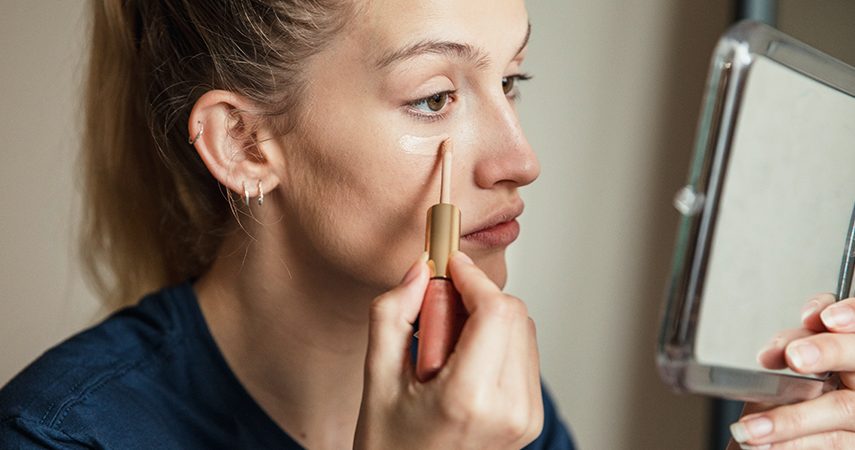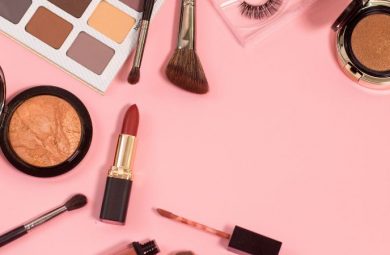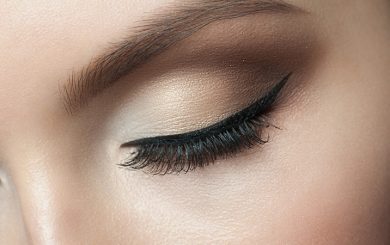Concealer is one of the essential steps in every good makeup routine. It brightens up the complexion, highlights the best areas of your face, and hides those dark under-eye bags that provide evidence of a sleepless night or dehydration. Concealer is basically a color corrector, usually a few shades lighter than one’s skin tone, and its primary purpose is to cover blemishes and dark circles.
Concealer is irreplaceable, and many makeup aficionados swear that they would never leave their house without it, even if they go “makeup-free” for the day.
Concealer in its liquid form has a similar consistency as a foundation, but it is considerably thicker, so it can cover more than a typical foundation can. Of course, there are numerous products out there with varying degrees of coverage. However, some of the most popular ones are medium to full coverage liquid concealers.
Even though it seems to be pretty straightforward, there are some questions still lingering in the air. Which type of concealer is better – liquid or powder? Should you put it on the face before or after the foundation? What should you look for in liquid concealer? And how to apply it correctly?
Liquid vs. Powder Concealer
Liquid concealer is by far the most dominating form of concealer on the market. It is easy to use, super easy to blend, and provides impressive results.
Powder concealers also exist even though they are not as popular as their liquid brothers. Basically, powder concealer is very similar to powder foundation but much more pigmented so it can conceal the blemishes, dark circles, and discoloration on the face.
This type of product is suitable for sensitive and acne prone skin and works wonders for people who want to hide their pesky imperfections but still have a decent level of a natural finish. Moreover, powder concealer does not shine, unlike the liquid version, and does not have to be set.
Users of powder concealer state that it lasts much longer than liquid, cream, or stick concealer, and that it does not crease. Apply it with a brush or a damp cosmetic sponge, especially if you have dry skin. However, people with dry skin will probably not benefit from this product as much, as it can be flaky.
On the other hand, liquid concealers will work wonders on dry skin. As they are the most prevalent product on the market, they offer more options when it comes to formula and shade range, so people of all skin tones can find their perfect match.
It is very easy to blend with a brush, sponge, or just your fingers, however, the world is yet to invent a liquid concealer that does not crease, so you do have to set it with powder to avoid this.
What to Look for in a Concealer
When you decide to get a liquid concealer and go to the beauty store or get online and try to order one, you may feel a bit overwhelmed with millions of options available. So how do you choose the perfect one?
Skin Type
First of all, think about your skin type. Liquid concealers work best with normal, sensitive, combination, and acne-prone skin. They are also suitable for dry skin types as they won’t cause as much flaking as powder versions. However, people with dry skin might benefit most from stick or cream concealer.
Related Search Topics (Ads)
Related Products
Coverage
Next, think about coverage. Do you want to conceal your entire existence or just have something to highlight the best parts of your face? For people who mean business, full-coverage concealer is the way to go but the most popular version is medium coverage. Sheer concealers won’t hide your dark circles, but they will successfully highlight your face.
Finish
Another thing to think about is finish. Do you want to be a dewy goddess or a matte queen? Think about shimmer and radiance when picking your perfect match.
Also, if you have acne-prone skin, you may benefit from a non-comedogenic formula, and if you are looking for a 2 in 1 product, go for a concealer with SPF.
How to Apply Liquid Concealer
The first question about application that arises is: should you apply concealer before or after foundation? This depends on the type of foundation you are using.
If you are using a powder foundation, the answer is clear – apply concealer first. Liquid over powder is a recipe for disaster, so try to avoid this as much as possible.
If you opt for a liquid foundation, apply concealer after your foundation. There are three main reasons why this is better.
First, you are not moving the concealer and dragging it around the skin when you apply foundation, especially if you are using a brush. Next, you will find that you need minimal concealer when you apply it after the foundation, as it can cover some of the smaller blemishes that you would otherwise smother with too much product. Finally, using the concealer after the foundation ensures that you are highlighting your face and creating the shadow and light play that is much needed for a chiseled look.
Now let’s talk about application. Start with the foundation and cover your entire face. Then, dab a bit of concealer under your eyes, on your T zone, and anywhere where you feel you need more coverage.
Use a concealer brush or a small, damp cosmetic sponge to blend the concealer with the foundation and cover the imperfections. Try not to over-apply as you can end up looking cakey.
Once done, use a translucent powder to set the concealer, or proceed to bake the face if that is something you do regularly. Bear in mind that the powder needs to be lighter than your foundation, as it can darken the concealer and erase its effect.
If you are using a colorless powder, be aware that the concealer will look a bit darker than when you originally applied it. This is because powder
mattifies the skin which does not reflect as much light as when the skin is
dewy, so make sure to use concealer at least one shade lighter than your skin tone.
Et voila! You’re done and ready to take over the world!





